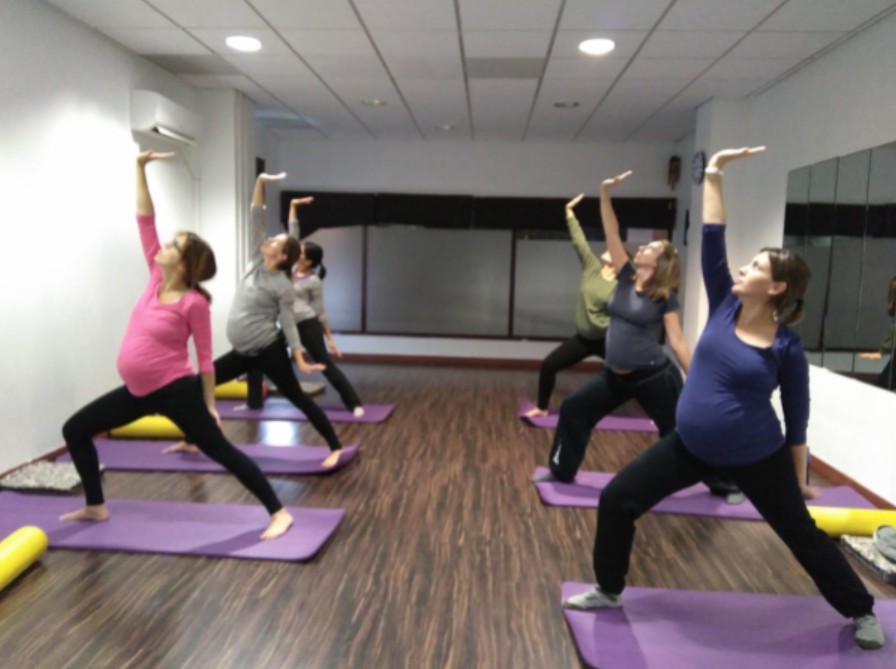
Pregnancy: Tips to exercise safely
How can you exercise safely during your pregnancy? Experts give us useful tips to succeed. The benefits of exercise are well known, while during pregnancy, it helps both the health of the expectant mother and the healthy development of the fetus, with the benefits extending in the long run to his childhood and adult life.
Experts give us the best advice to be able to exercise safely but first take some time for yourself to relax or have some fun and check out online casino. Now, let’s move to the tips for safe exercising while pregnant.
What if I didn’t exercise before I got pregnant?
The good news, though, is that you can benefit from exercising during the nine months of pregnancy, even if exercise was not your favorite habit before.
The official recommendation of the American College of Obstetricians and Gynecologists (ACOG) recommends thirty minutes of exercise at least five days a week (or a total of 150 minutes per week) throughout your pregnancy.
Do not forget this time also includes the time you spend at home doing chores, cleaning and organizing.
Tips to work out safely
While exercising during pregnancy is generally safe, there are some precautions you should follow to exercise safely and get started once you get your doctor’s approval.
These include:
New habit? Start gently. If you start exercising vigorously from the very first workouts, it is possible that you will injure your muscles and feel discomfort. Instead, try to start with 20 minutes of gentle exercise, including warm-up and recovery, and gradually increase the duration to 30 minutes.
Favorite habit? Do not overdo it. Even if exercise is already one of your favorite habits, it is important to remember that pregnancy already brings a lot of challenges for your body, so leave the hard workouts for a while. Your goal during these months is to maintain your fitness levels and not to improve them.
Avoid high temperatures. It would be better for these months to avoid saunas, steam baths or hot tubs, as anything that raises the temperature of the future mom is suggested to be avoided. If temperatures outside are high, work out inside.
Listen to your body. It is important to exercise but not to get to the point of exhaustion. To achieve this, it is important to listen to your body and exercise while taking into consideration your need for rest or movement. The level of intensity should allow you to work out while being able to do a conversation without being out of breath.
Your back should not touch the floor. Avoid exercises where you should lie on your back on the floor without moving for a long time after the fourth month of pregnancy. The weight of your developing uterus can compress blood vessels, restricting circulation.
Do not forget to drink water. For every half hour you exercise you should drink at least a glass of water and more if you have hot temperatures or if you sweat a lot. Start drinking ideally 30 to 45 minutes before you start exercising and continue to drink plenty of water during and after your workout.
Nutritional snacks: Exercising or high-intensity exercise for more than 45 minutes can lead to low blood sugar, so enjoy a light snack of complex protein-carbohydrates before and after your workout.
It is important to always take it easy and take your time while exercising. Do not push yourself too much. Always consult with your doctor before you start any new exercise and before continuing with your usual fitness routine while being pregnant. Every body is different and every pregnancy is different too. Your endurance and energy levels may fluctuate and while exercise is always beneficial and good for you, you need to adjust it to your current health, conditions, energy level and mood.
As the pregnancy progresses the type of exercise you may do also changes. Even on the first weeks of pregnancy you need to talk with your doctor about what exercise is safe for you and the baby and you also need to let your fitness coach/trainers know.
For example, if you practice yoga there are certain postures that are not advised to be done by pregnant women on the first 3 months of pregnancy etc. Do not panic or be afraid to do exercise, just use some common sense and ask the experts before doing anything that could cause any sort of discomfort.






